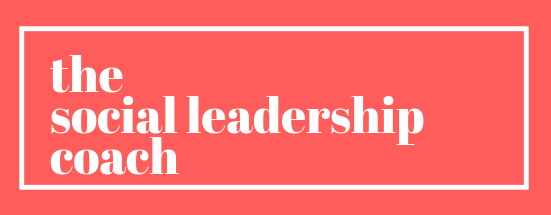This post is also available in:
 Spanish
Spanish
Social changemakers (or social leaders) are people who dedicate themselves to creating positive and impactful change in society. They possess a deep sense of purpose, a passion for justice, and a commitment to addressing pressing social issues. While the overarching goal of all social changemakers is to bring about positive transformations, they approach their work in different ways. In this blog, we will explore different types of social changemakers and highlight the unique approaches they employ to drive meaningful change.
Types of Social Changemakers Based on Their Work
Non-Profit, NGO, and Philanthropic Leaders
These are the people who work for social impact organizations that are not for profit. There are different terms for these organizations throughout the globe, such as:

Non-profit organizations
Non-governmental organizations (NGOs)
Civil society organizations
Foundations
Associations
The global social impact sector is growing. According to the Johns Hopkins Center for Civil Society, 7.4% of people worldwide work in this area.
Social Entrepreneurs

Social entrepreneurs are innovative individuals who blend business principles with a social mission. They create sustainable ventures that address social and environmental challenges. These changemakers identify market gaps and design innovative solutions to improve the lives of individuals and communities. Social entrepreneurs strive for financial viability while prioritizing social impact, employing creative business models, and leveraging technology to drive systemic change.
There are a growing number of social entrepreneur companies and social enterprises organized as B-Corporations or Benefit Corporations.
Social Innovators

Social innovators and tech activists harness the power of technology and innovation to tackle social problems. They utilize data, digital tools, and emerging technologies to develop solutions that improve access, efficiency, and inclusivity. From developing apps for education or healthcare to leveraging artificial intelligence for social good, these changemakers push the boundaries of traditional problem-solving methods to create transformative impact.
Social Communicators

Thought Leaders and Influencers
Thought leaders and influencers use their platforms to raise awareness, challenge societal norms, and inspire change. They have a powerful voice and utilize it to shape public opinion, influence public discourse, and advocate for social justice. These changemakers often leverage social media, public speaking engagements, writing, and media appearances to amplify their message and rally support for critical social issues.
Cultural Change Agents

Cultural change agents focus on shifting attitudes, beliefs, and behaviors within society. They recognize the importance of cultural norms, values, and narratives in shaping social realities. These changemakers use arts, media, storytelling, and other cultural mediums to challenge stereotypes, promote inclusivity, and foster empathy. By addressing deeply rooted biases and promoting cultural change, they pave the way for social transformation.
Community and Civic Leaders

Community and civic leaders actively engage with their communities and play a significant role in driving positive change, promoting social justice, and enhancing the well-being of their localities. They are passionate advocates for community development and act as catalysts for social progress. These leaders may come from various backgrounds and hold different positions, but they all share a commitment to improving the lives of those around them. Community and civic leaders organize, raise awareness, advocate, collaborate, build engagement, mobilize resources, and help manage crises.
Many community leaders are grassroots community organizers. They work directly with local communities to initiate change from the ground up. They mobilize individuals and groups to address specific community needs, such as access to education, healthcare, affordable housing, or environmental sustainability. These changemakers empower communities through capacity-building, organizing campaigns, and facilitating community-driven solutions. Grassroots organizing often fosters a sense of ownership and self-determination within communities, leading to sustainable change.
Activists
Bill Moyer’s Movement Action Plan defines 4 complementary roles activists must play to advance social movements: Citizen, reformer, rebel, and change agent. The graphic below summarizes each role when it is played effectively and ineffectively.

Health and Wellness Professionals

Health and wellness professionals are people who work in various fields and roles dedicated to promoting and enhancing the well-being of individuals and communities. They possess specialized knowledge, skills, and expertise in areas related to physical, mental, and emotional health. These professionals play a crucial role in supporting individuals in achieving optimal health, preventing illness, and adopting healthy lifestyle behaviors.
These include doctors, medical practitioners, nurses, nutritionists, public health professionals, psychologists, therapists, physical fitness professionals, and others.
Human Services Providers

Human services providers are dedicated individuals who work in a wide range of roles and settings to assist and support individuals and communities in meeting their social, emotional, and practical needs. They work with diverse populations, such as children, youth, families, older adults, individuals with disabilities, and individuals experiencing homelessness or facing other social challenges. Human services providers play a vital role in advocating for vulnerable populations, coordinating services, and promoting social well-being. They are passionate advocates who play a critical role in promoting social justice, equity, and positive change in society. Human services providers include social workers, case managers, rehabilitation specialists, counselors, youth workers, mentors, coaches, and others.
Teachers and Educators

Teachers and educators play a pivotal role as social changemakers by shaping the minds and lives of individuals, fostering critical thinking, promoting empathy, and equipping students with the knowledge and skills needed to create positive change in society. They go beyond the traditional role of imparting academic knowledge and act as catalysts for social transformation. Teachers and educators have a unique opportunity to shape future generations and create a more just and sustainable society. They inspire and empower students to make a positive difference in the world.
Corporate Responsibility Professionals

Corporate responsibility professionals, also known as sustainability or corporate social responsibility (CSR) professionals, are people who work within corporations to promote ethical, responsible, and sustainable business practices. They play a crucial role in integrating social, environmental, and economic considerations into the core operations and strategies of companies. Corporate responsibility professionals aim to create positive impacts on society and the environment while also ensuring the long-term success and resilience of the organization.
ESG (Environmental, Social, and Governance) professionals are a specialized subset of corporate responsibility professionals who focus specifically on managing and reporting on the environmental, social, and governance aspects of an organization’s operations. ESG has emerged as a framework for assessing the sustainability and societal impact of businesses, and ESG professionals play a critical role in helping companies understand and address these areas.
Volunteers

The UN estimates that there are 970 million people around the globe serving as volunteers for social impact organizations. That is almost 1 billion people!
Types of Social Changemakers Based on Their Style: the 6 Changemaker Archetypes
The Story of Stuff Project created this wonderful framework to understand 6 changemaker styles. As you can see in the infographic below, they are the builder, the networker, the nurturer, the resister, the communicator, and the investigator. Take their quiz to find out your changemaker style. I am primarily a networker!

Final Thoughts
Social changemakers come in various forms, each with their own unique approaches and contributions to creating positive change in society. They all play vital roles in driving social transformation. By recognizing and appreciating the diverse types of social changemakers, we can honor their efforts and inspire others to join the movement for a more equitable, just, and sustainable world.
Enjoyed this Article?
Please comment and share this article with your network using the social media buttons below. I wrote this article with the help of AI – wow! You can also check out other articles in my blog. Don’t forget to subscribe to this site for exclusive offers and content. I respect my subscribers and their privacy. Thanks!








3 Comments
Leave your reply.